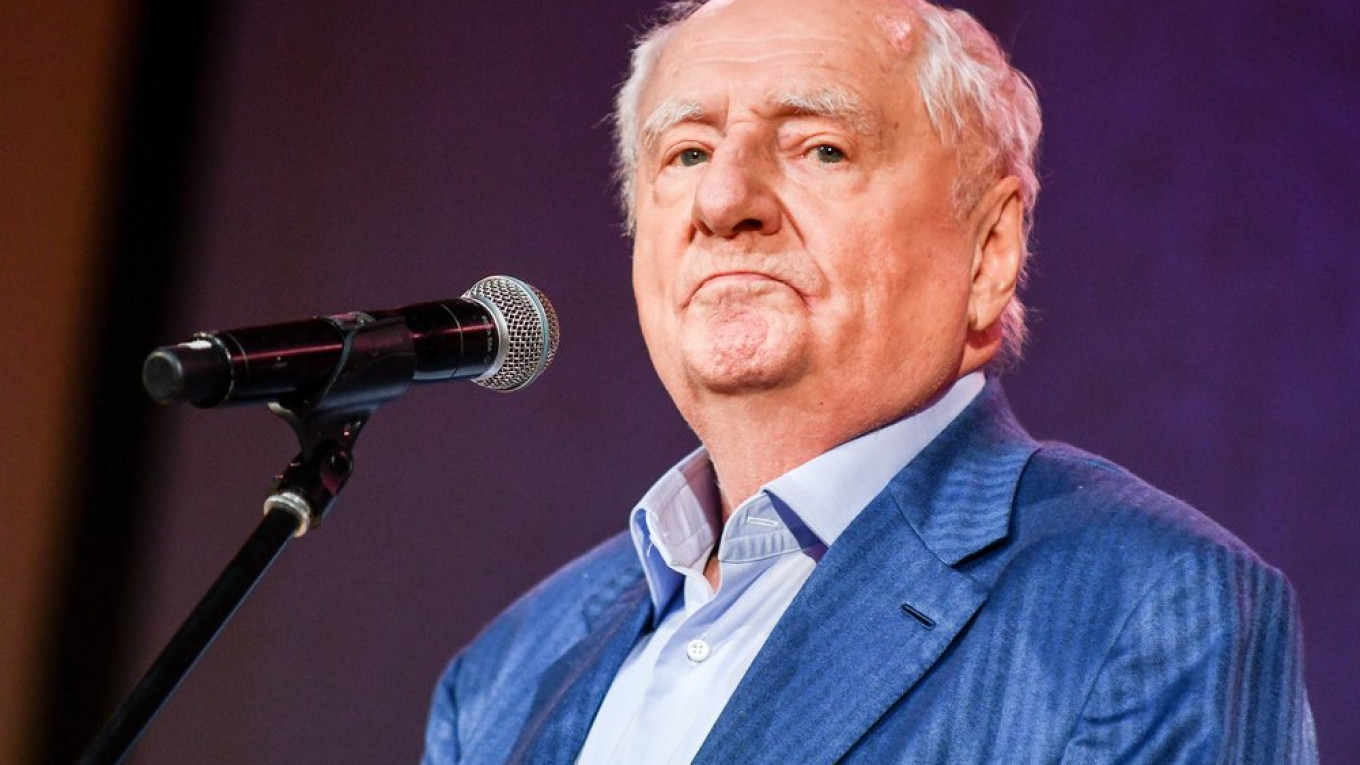On Saturday morning film and theater director, screenwriter and writer Mark Zakharov died of complications from pneumonia. He was 85 years old.
Mark Zakharov was the artistic director of the Lenkom Theater in Moscow since 1973 and defined not only the theater’s repertory but the style and spirit of the late-Soviet era. He gathered a “dream team” at the theater — a group of actors who became, both together and individually, the greatest theatrical stars of their time. Yevgeny Leonov, Inna Churikova, Oleg Yankovsky, Alexandr Abdulov, Nikolai Karachentsov, Tatyana Pelttser and others were all part of Zakharov’s Lenkom.
Among his most important productions was “Juno and Avos,” the Soviet Union’s first rock opera about the Russian ships that landed in California and the doomed love affair between a Russian sailor and the daughter of the Spanish governor.
Zakharov was also renowned for his work in film, both as director and screenwriter. “The Twelve Chairs” (1976); “An Ordinary Miracle (1978); “That Very Munchhausen” (1979); and “Formula of Love” (1984) are masterpieces that every Soviet and Russian movie-lover has watched countless times. Zakharov is also credited with writing the dream letters that the character Sukhov writes to his wife in “White Sun of the Desert.”
This weekend the Russian press and social media were filled with reminiscences and tributes. Film director Alexander Rodnyansky wrote that Zakharov’s works “were part of all our lives, and each of our lives… It is a personal loss for each and every one of us.” Writer Viktor Shenderovich wrote that Zakharov was a “director who was the master of every shade of comedy, from the most subtle irony to buffoonery.” And film critic Anton Dolin wrote that Zakharov “was more than a director… since perestroika he was also a public figure who burned his Communist Party card on live television and was one of the first to call for Lenin’s burial. Zakharov’s films and theater productions didn’t just reflect the era, they defined it.”
Mark Zakharov was one of the Soviet Union and Russia’s most celebrated cultural figures who received dozens of awards over his lifetime, including the Order of Friendship of Peoples; Order of Merit of the Fatherland, People’s Artist of the U.S.S.R. and the State Prize.
He will be buried in Novodevichy Cemetery.
A Message from The Moscow Times:
Dear readers,
We are facing unprecedented challenges. Russia's Prosecutor General's Office has designated The Moscow Times as an "undesirable" organization, criminalizing our work and putting our staff at risk of prosecution. This follows our earlier unjust labeling as a "foreign agent."
These actions are direct attempts to silence independent journalism in Russia. The authorities claim our work "discredits the decisions of the Russian leadership." We see things differently: we strive to provide accurate, unbiased reporting on Russia.
We, the journalists of The Moscow Times, refuse to be silenced. But to continue our work, we need your help.
Your support, no matter how small, makes a world of difference. If you can, please support us monthly starting from just $2. It's quick to set up, and every contribution makes a significant impact.
By supporting The Moscow Times, you're defending open, independent journalism in the face of repression. Thank you for standing with us.
Remind me later.






